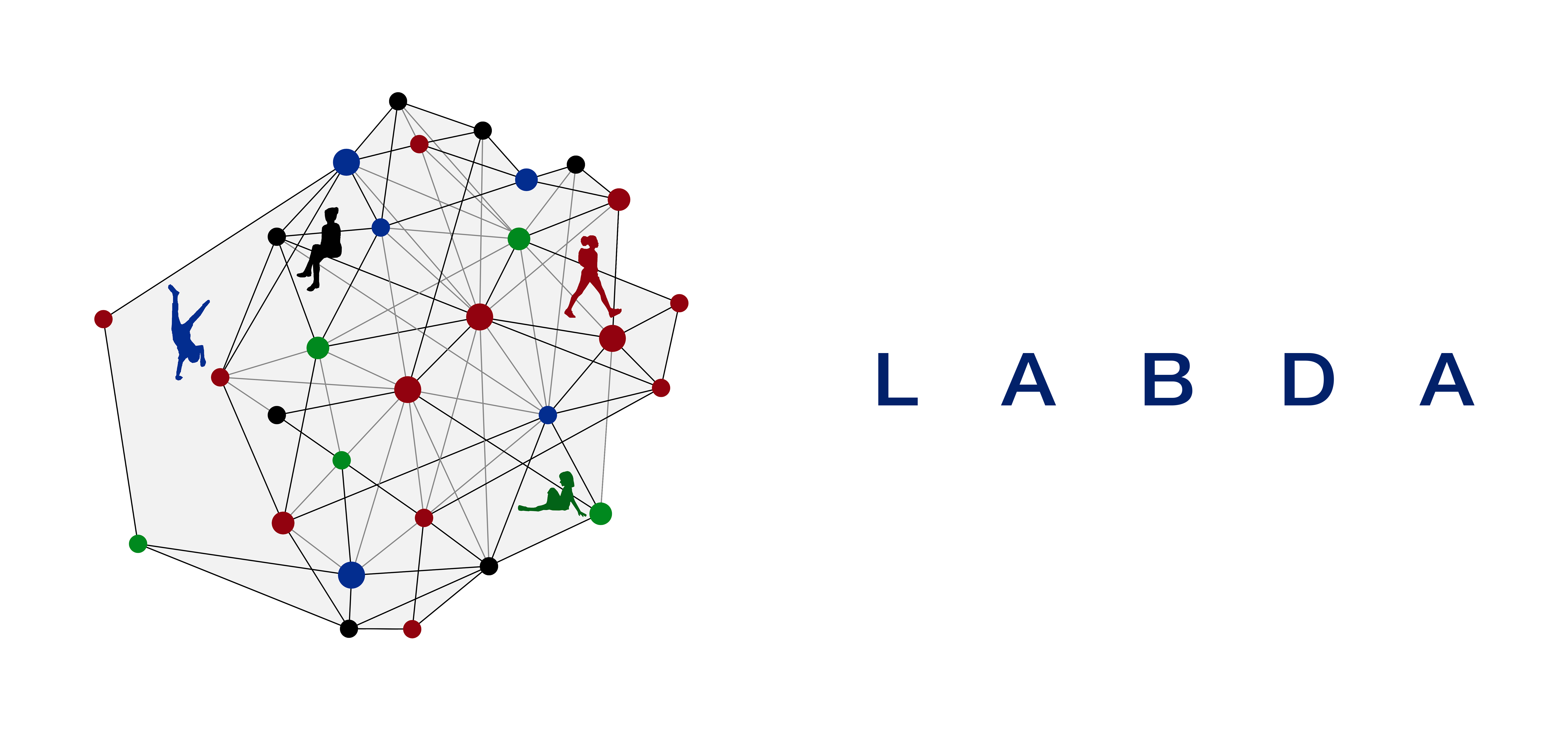LABDA
Learning Network for Advanced Behavioural Data Analysis

About LABDA
LABDA (Learning Network for Advanced Behavioural Data Analysis) is an EU-funded Marie Skłodowska-Curie Actions (MSCA) doctoral network project under Horizon Europe (H2021 MSCA; n° 101072993). In this international doctoral network, leading researchers in advanced movement behaviour data analysis at the intersection of data science, method development, epidemiology, public health, and wearable technology collaborate to train a new generation of creative and innovative public health researchers via training-through-research.
The main aims of LABDA are to establish novel methods for advanced 24/7 movement behaviour data analysis of sensor-based data, examine the added value of advanced behavioural data analysis and multi-modal data for predicting health risk and facilitate the use and interpretability of the advanced methods for application in science, policy and society. Via training-through-research projects, 13 doctoral fellows will contribute to reaching these aims. Together, they will develop a joint taxonomy to enable interoperability and data harmonisation.
Results will be combined in an open-source LABDA toolbox of advanced analysis methods, including a decision tree to guide researchers and other users to the optimal method for their (research) question. The open-source toolbox of advanced analysis methods will lead to optimised, tailored public health recommendations and improved personal wearable feedback concerning 24/7 movement behaviour.
Out of 13 LABDA PhD fellows, 3 are based at Amsterdam UMC. Fellow 4 develops methods for temporal data analysis of 24-hour movement behaviour amongst others and generates and tests predictive modelling programs for this behaviour. Fellow 8 characterises behaviour profiles across subgroups using advanced methods with an intersectional approach, and translates optimal behaviour profiles into public health recommendations. Fellow 10 examines the applicability of various advanced analyses methods across various subgroups at the intersection of characteristics such as age, gender, ethnicity, and socio-economic position, and translates the results of these intersectionality analyses into input for the optimal design of the LABDA toolbox.
Want to find out more about LABDA? Visit the LABDA website.

This project has received funding from the European Union’s Horizon Europe research and innovation programme under the Marie Skłodowska-Curie grant agreement No.101072993





Researchers
Gaia Segantin, MSc
Mari Sone, MSc
Xin Zheng, MSc
Dr Fawad Taj
Assistant Prof Teatske Altenburg
Prof dr Mai Chin A Paw

